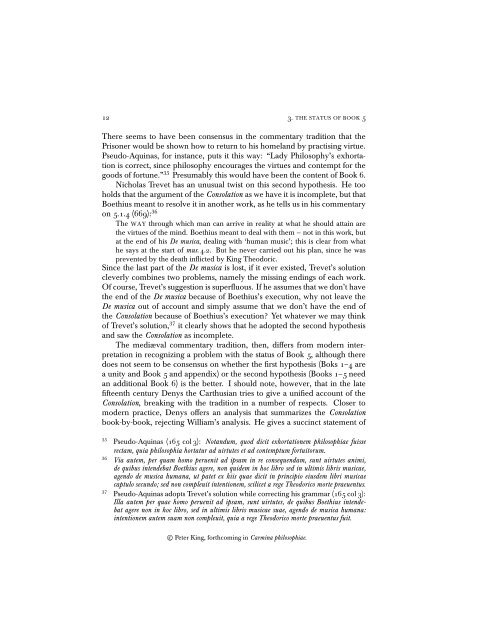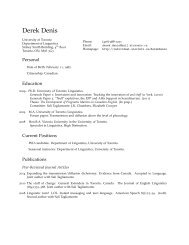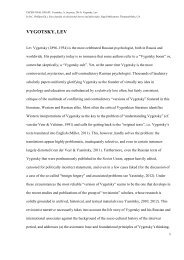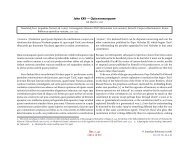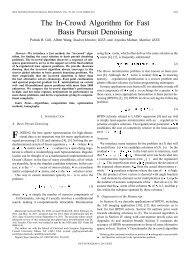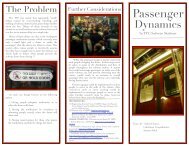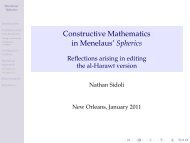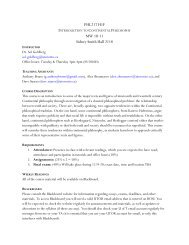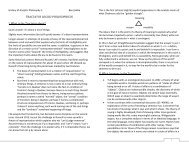BOETHIUS: FIRST OF THE SCHOLASTICS* - University of Toronto
BOETHIUS: FIRST OF THE SCHOLASTICS* - University of Toronto
BOETHIUS: FIRST OF THE SCHOLASTICS* - University of Toronto
Create successful ePaper yourself
Turn your PDF publications into a flip-book with our unique Google optimized e-Paper software.
12 3. <strong>THE</strong> STATUS <strong>OF</strong> BOOK 5<br />
There seems to have been consensus in the commentary tradition that the<br />
Prisoner would be shown how to return to his homeland by practising virtue.<br />
Pseudo-Aquinas, for instance, puts it this way: “Lady Philosophy’s exhortation<br />
is correct, since philosophy encourages the virtues and contempt for the<br />
goods <strong>of</strong> fortune.” 35 Presumablythis would have been the content <strong>of</strong> Book 6.<br />
Nicholas Trevet has an unusual twist on this second hypothesis. He too<br />
holdsthattheargument<strong>of</strong>theConsolation aswehaveitisincomplete,butthat<br />
Boethiusmeanttoresolveitinanotherwork,ashetellsusinhiscommentary<br />
on 5.1.4 (669): 36<br />
The WAY through which man can arrive in reality at what he should attain are<br />
the virtues <strong>of</strong> the mind. Boethius meant to deal with them — not in this work, but<br />
at the end <strong>of</strong> his De musica, dealing with ‘human music’; this is clear from what<br />
he says at the start <strong>of</strong> mus.4.2. But he never carried out his plan, since he was<br />
prevented by the death inflicted by King Theodoric.<br />
Since the last part <strong>of</strong> the De musica is lost, if it ever existed, Trevet’s solution<br />
cleverly combines two problems, namely the missing endings <strong>of</strong> each work.<br />
Ofcourse,Trevet’ssuggestionissuperfluous. Ifheassumesthatwedon’thave<br />
the end <strong>of</strong> the De musica because <strong>of</strong> Boethius’s execution, why not leave the<br />
De musica out <strong>of</strong> account and simply assume that we don’t have the end <strong>of</strong><br />
the Consolation because <strong>of</strong> Boethius’s execution? Yet whatever we may think<br />
<strong>of</strong> Trevet’s solution, 37 it clearly shows that he adopted the second hypothesis<br />
and saw the Consolation as incomplete.<br />
The mediæval commentary tradition, then, differs from modern interpretation<br />
in recognizing a problem with the status <strong>of</strong> Book 5, although there<br />
does not seem to be consensus on whether the first hypothesis (Boks 1–4 are<br />
a unity and Book 5 and appendix) or the second hypothesis (Books 1–5 need<br />
an additional Book 6) is the better. I should note, however, that in the late<br />
fifteenth century Denys the Carthusian tries to give a unified account <strong>of</strong> the<br />
Consolation, breaking with the tradition in a number <strong>of</strong> respects. Closer to<br />
modern practice, Denys <strong>of</strong>fers an analysis that summarizes the Consolation<br />
book-by-book, rejecting William’s analysis. He gives a succinct statement <strong>of</strong><br />
35 Pseudo-Aquinas (165 col3): Notandum, quod dicit exhortationem philosophiae fuisse<br />
rectam, quia philosophia hortatur ad uirtuteset ad contemptum fortuitorum.<br />
36 Via autem, per quam homo peruenit ad ipsam in re consequendam, sunt uirtutes animi,<br />
de quibus intendebat Boethius agere, non quidem in hoc libro sed in ultimis libris musicae,<br />
agendo de musica humana, ut patet ex hiis quae dicit in principio eiusdem libri musicae<br />
captulo secundo; sed non compleuitintentionem,scilicet a rege Theodorico morte praeuentus.<br />
37 Pseudo-AquinasadoptsTrevet’ssolution while correcting his grammar(165col3):<br />
Illa autem per quae homo peruenit ad ipsam, sunt uirtutes, de quibus Boethius intendebat<br />
agere non in hoc libro, sed in ultimis libris musicae suae, agendo de musica humana:<br />
intentionem autem suam non compleuit, quia a rege Theodorico morte praeuentusfuit.<br />
c○ Peter King, forthcoming in Carmina philosophiae.


